Born 1905 in Hollywood, California, American vaudevillian and photographer George Kline Mann was best known as the taller half of the comedic and acrobatic dance act, Barto and Mann.
George studied dance with Roy Randolph of the Randolph’s La Monica Dance School in Santa Monica, California. Shortly after turning 20, he developed a dance act – Mann & Clark – with his high school friend Lester Clark. Signing with the William Meiklejohn Agency, they performed together in Los Angeles for three or four months before George signed on as a single with Fanchon and Marco enterprises.
George (6’6″) was soon performing for comedic effect with a much shorter (4’11”) Dewey Barto. Two days after George turned 21, George and Dewey signed a ten-year contract with Fanchon and Marco as the comedy team Barto and Mann.
Following World War II, George acted in small roles in several movies,[9] on the stage, and with Jack Carson’s stage revue but primarily devoted himself to making a living with photography, an activity he had pursued actively while in vaudeville when he took about 12,000 black and white photographs, many of them demonstrating an extraordinary skill and aesthetic sensibility. He also took thousands of feet of B&W and color 16mm film.
In the early 1970s, George was hired by Quaker Oats to portray King Vitaman in commercials and on the front of the King Vitaman cereal box.
George Mann lived in Santa Monica, California at the time of his death in 1977 at age 71.
These amazing photos from Brad Smith were taken by George Mann that show New York’s theatre marquees from the 1930s.
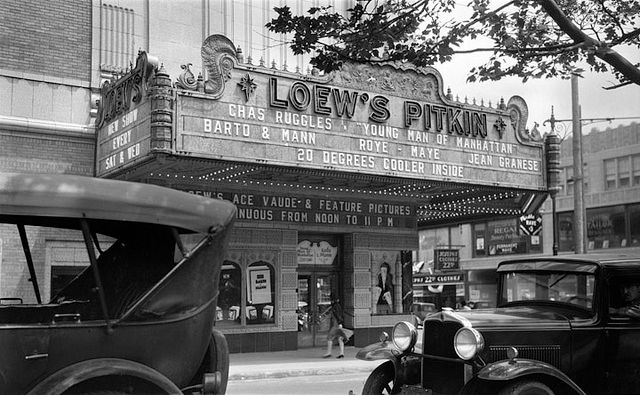 |
| Side-street view of Loew’s Pitkin Theatre, Brooklyn, New York, May, 1930 |
 |
| Capitol Theatre, NY, December 1930 |
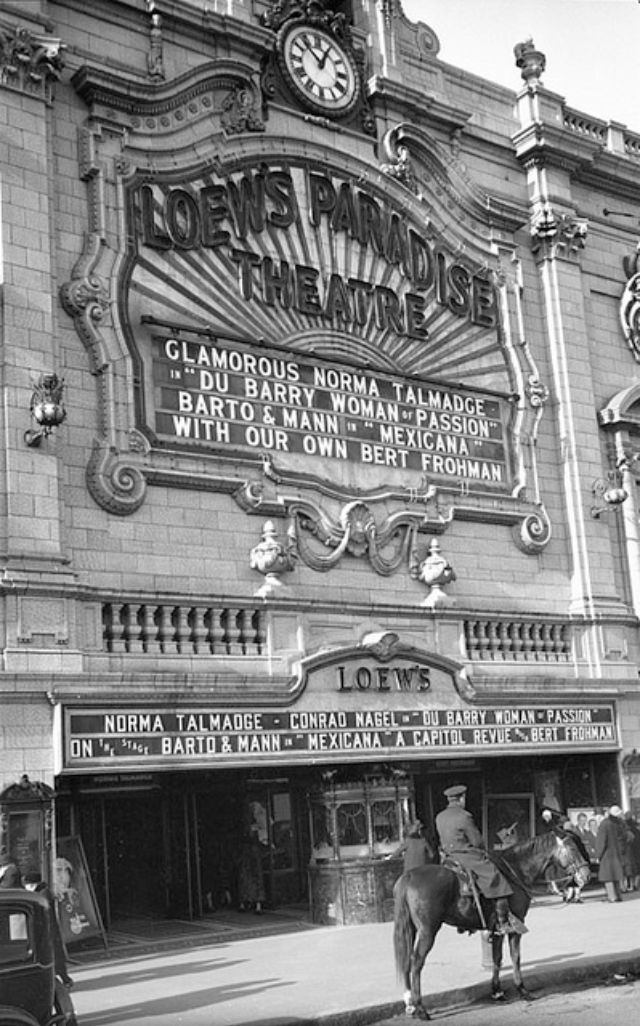 |
| Loew’s Paradise Theatre, Bronx, New York, December 6, 1930 |
 |
| Loew’s Gates Theatre, Brooklyn, NY, May 7, 1930 |
 |
| Loew’s Metropolitan Theatre, Brooklyn, NY, April 12, 1930 |
 |
| Loew’s Oriental Theatre, Brooklyn, NY, 1930 |
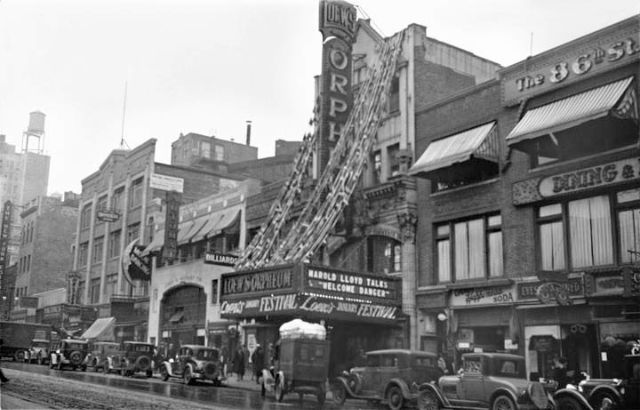 |
| Loew’s Orpheum Theatre, New York, NY, January 1930 |
 |
| Loew’s Pitkin Theatre, Brooklyn, New York, November 1930 |
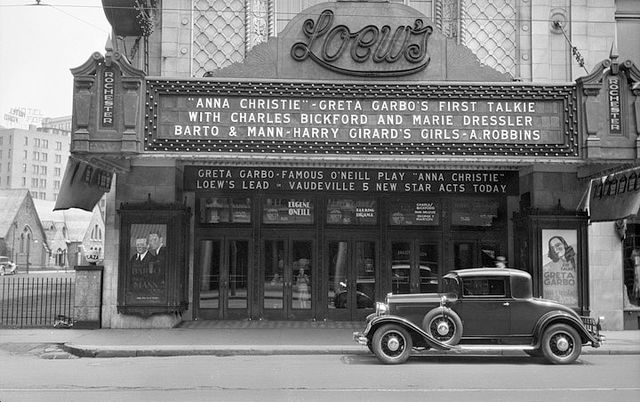 |
| Loew’s Rochester Theatre, Rochester, New York, April 26, 1930 |
 |
| Loew’s State Theatre (now Landmark Theatre), Syracuse, New York, April 19, 1930 |
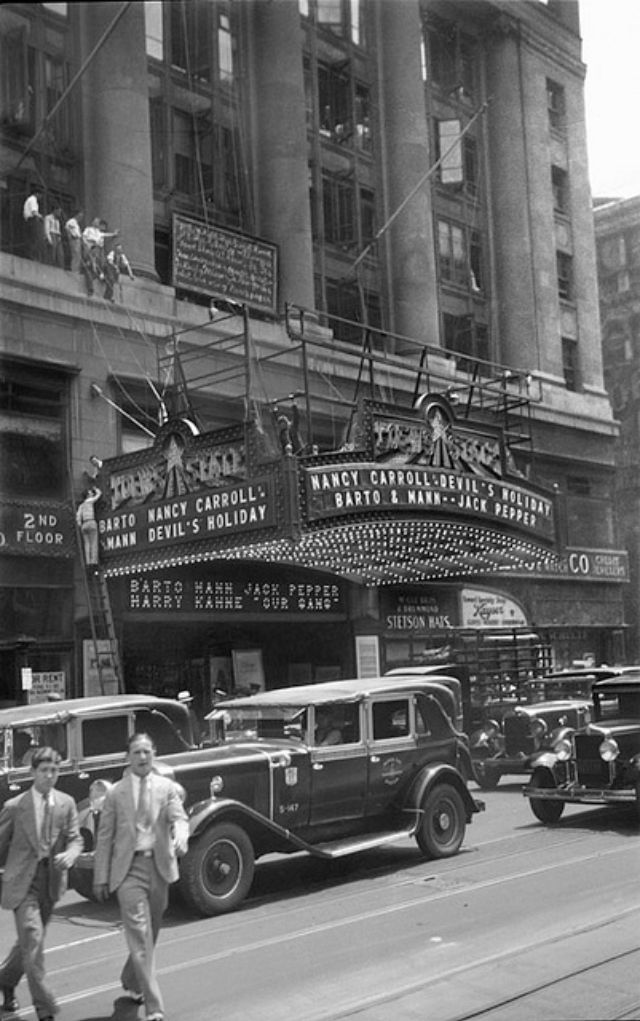 |
| Loew’s State Theatre, Manhattan, New York, June 1930 |
 |
| Loew’s Valencia Theatre, Jamaica, NY, December 13, 1930 |
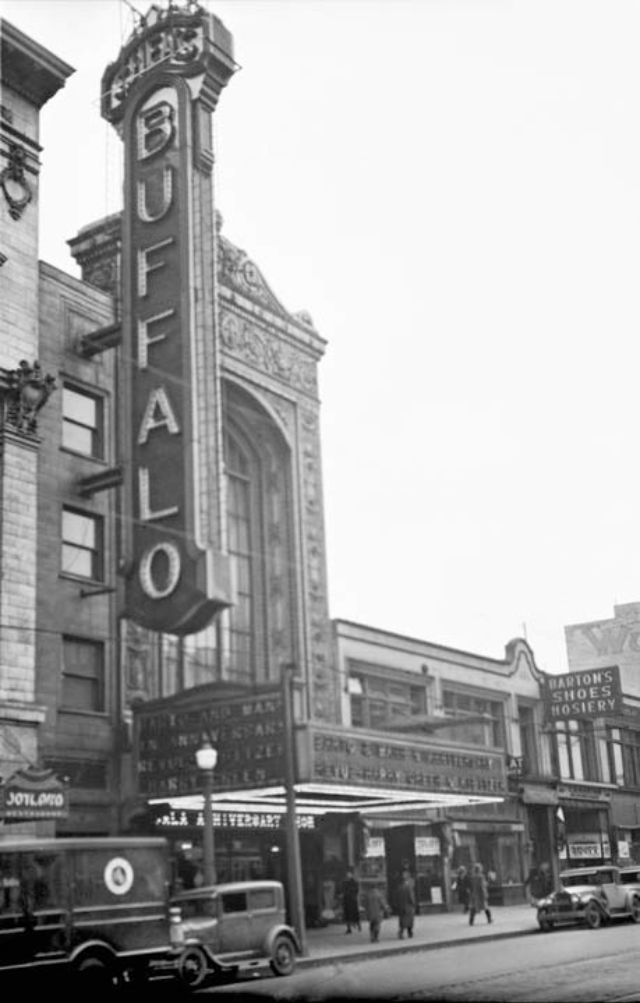 |
| Shea’s Buffalo Theatre (now Shea’s Performing Arts Center), Buffalo, New York, January 1930 |
 |
| Academy of Music (later converted to the Palladium), New York, 1931 |
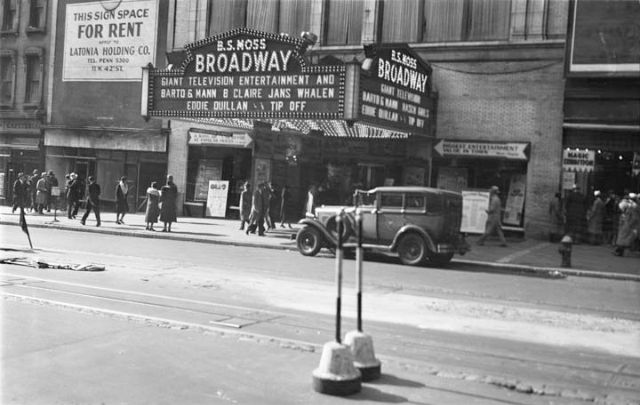 |
| B.S. Moss Broadway Theatre, NY, October 1931 |
 |
| Brooklyn Paramount Theatre, NY, November 1931 |
 |
| Capitol Theatre, New York, NY, February 27, 1931 |
 |
| Fox’s Great Lakes Theatre (also known as the Paramount Theatre), Buffalo, New York, February 6, 1931 |
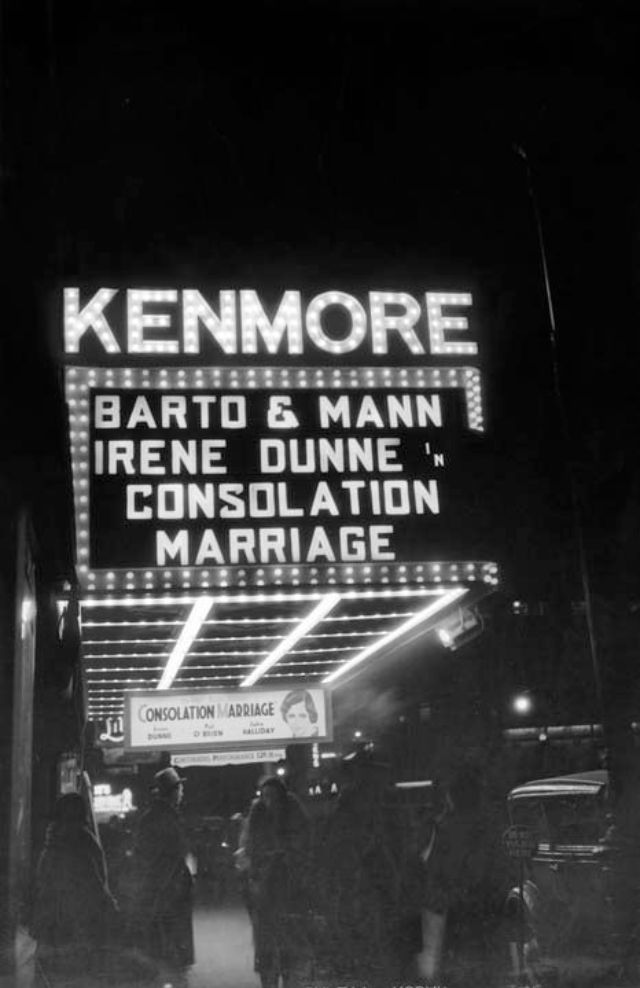 |
| Kenmore Theatre, Brooklyn, NY, December 1931 |
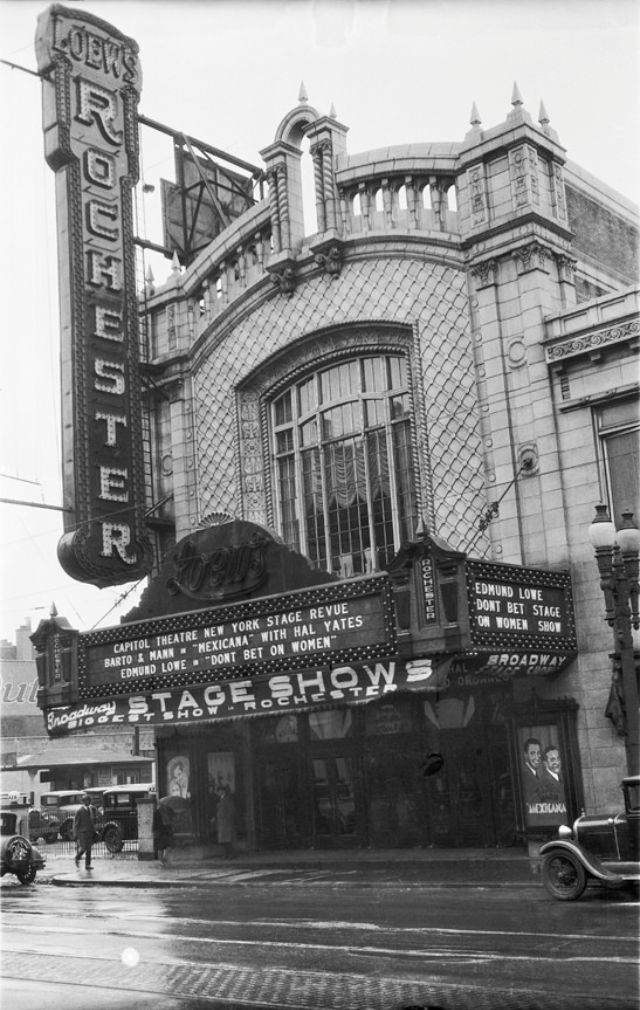 |
| Loew’s Rochester Theater, Rochester, NY, February 13, 1931 |
 |
| Loew’s State Theatre (now Landmark Theatre), Syracuse, New York, February 1931 |
 |
| Loew’s State Theatre, NY, March 1931 |
 |
| Loew’s Yonkers Theatre, Yonkers, NY, March 1931 |
 |
| Paramount Theatre, New York, December 1931 |
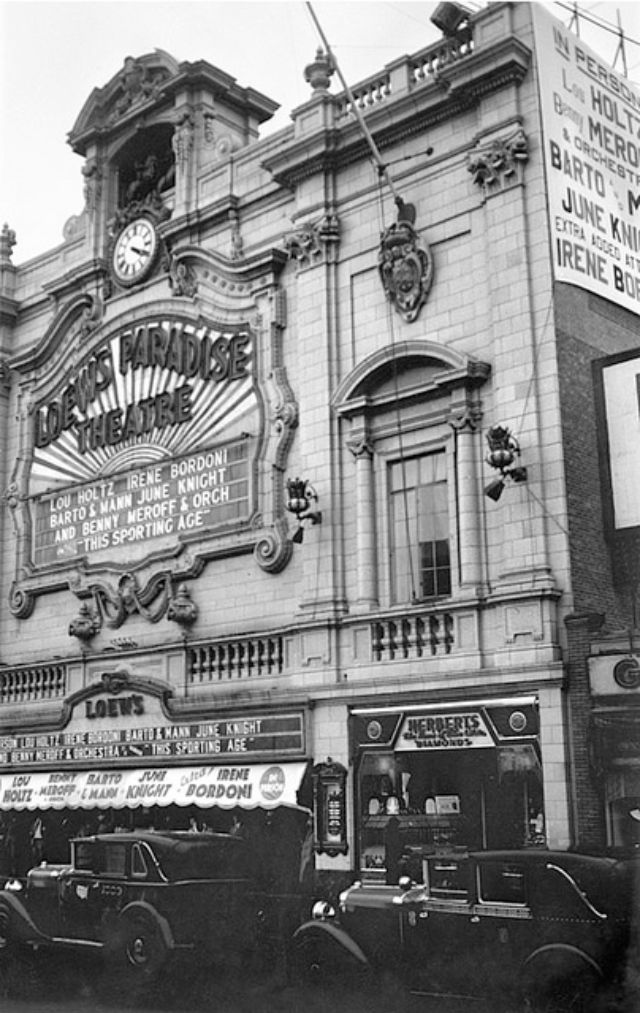 |
| Loew’s Paradise Theatre, Bronx, New York, 1932 |
 |
| Loew’s Metropolitan, NY, 1932 |
 |
| Loew’s Rochester Theater, Rochester, NY, September 23, 1932 |
 |
| Palace Theatre, NY, January 1932 |
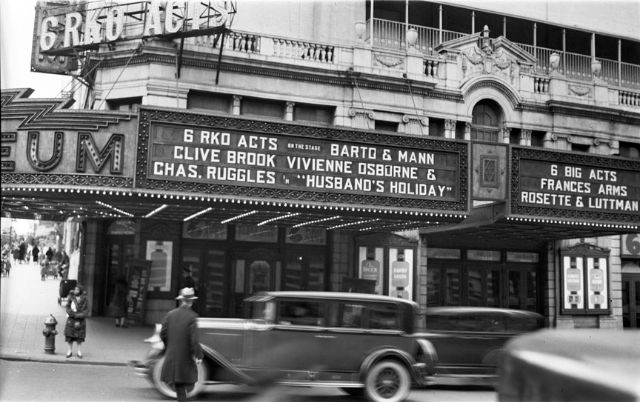 |
| RKO Coliseum Theatre, NY, January 1932 |
 |
| RKO Fordham Theatre, Bronx, NY, January, 1932 |
 |
| Shea’s Buffalo Theatre, New York (now Shea’s Performing Arts Center), February 1932 |
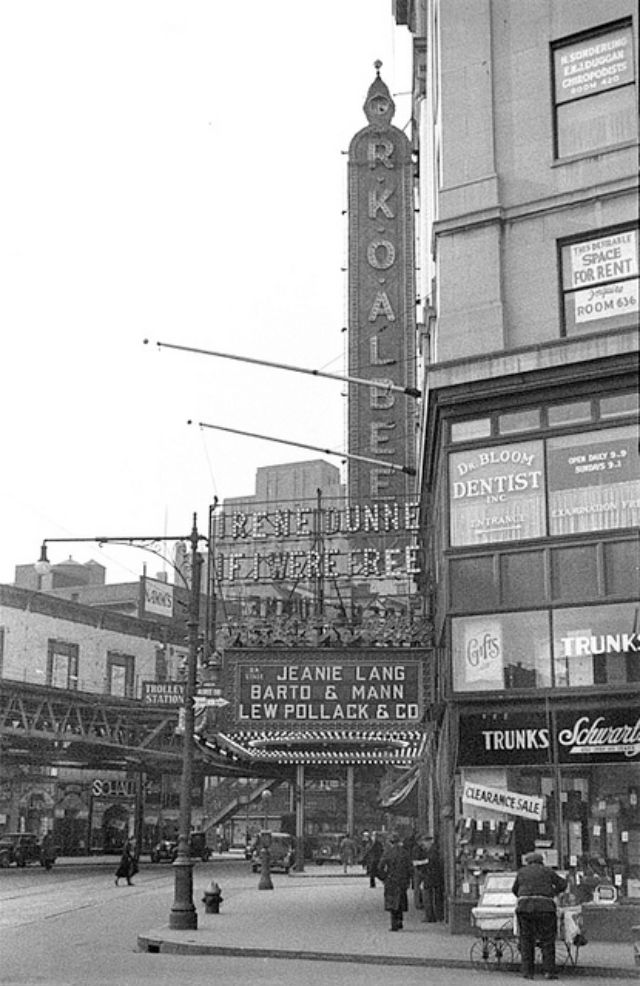 |
| RKO Albee Theatre, Brooklyn, New York, 1933 |
 |
| RKO Albee Theatre, Brroklyn, NY, 1933 |
 |
| Artef and Longacre Theatres, New York, 1935 |
 |
| Paradise Cabaret Restaurant in the Brill Building, New York,1937 |
 |
| Paramount Theatre, New York, 1937 |
 |
| Roxy Theater, New York, 1937 |
 |
| Loew’s State Theatre, New York, August 1938 |
 |
| Loew’s State Theatre, New York, August 1938 |
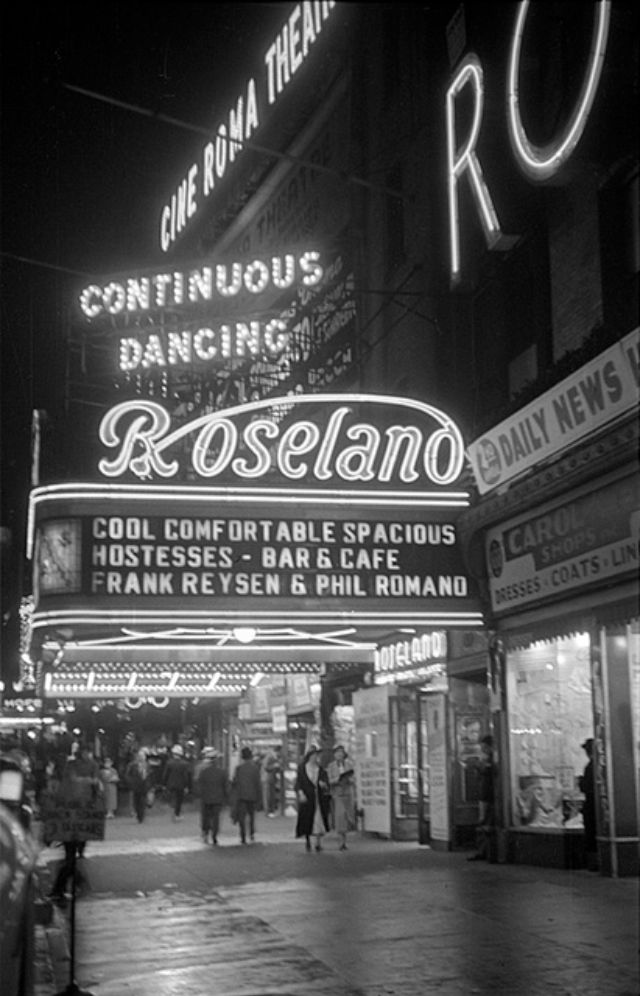 |
| The Roseland Ballroom and Cine Roma Theater, NY, 1938 |